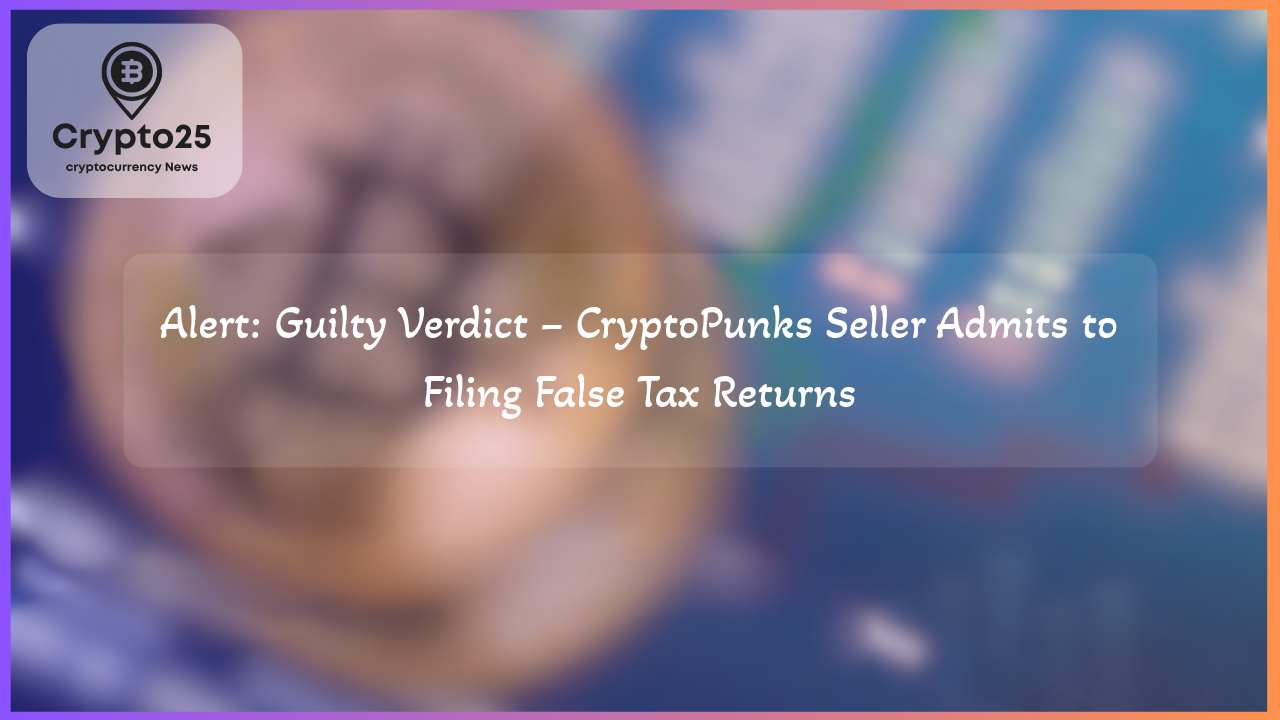
The world of cryptocurrency and NFTs continues to evolve at breakneck speed, bringing with it incredible opportunities but also stringent challenges. In a recent case, a Pennsylvania man pleaded guilty to filing fraudulent tax returns, highlighting the growing importance of tax compliance in the digital asset space. This incident sheds light on the critical intersection of cryptocurrency, NFTs, and legal accountability in today’s financial landscape.
## CryptoPunks and the Rising Issue of NFT Tax Fraud
CryptoPunks, one of the earliest and most iconic NFT collections, have transformed the digital collectibles market with their pixelated characters. Yet, as their popularity surged, so too did instances of misuse, with some individuals failing to adhere to tax reporting obligations on sales transactions. The case of Waylon Wilcox, a Pennsylvania resident, serves as a striking example. Wilcox deliberately underreported more than $13 million in income derived from 97 CryptoPunks transactions between 2021 and 2022. These omissions enabled him to evade over $3.2 million in taxes, according to the U.S. Attorney’s Office from Pennsylvania’s Middle District.
In those years, CryptoPunks were at the height of their demand. With prices peaking in August 2021 at a floor value of 125 ETH (around $479,000 at the time), the collection became a symbol of the NFT boom. Despite its subsequent depreciation—now down over 85% from that high—this example underscores how significant these assets were during the bullish market. However, the potential monetary gains from NFTs also invite scrutiny from authorities, particularly with millions at stake.
## Legal Consequences for Failing to Report Crypto and NFT Income
The Internal Revenue Service (IRS) and other federal authorities are tightening efforts to regulate cryptocurrency and digital assets amidst increasing cases of tax evasion. Wilcox, who sold 62 CryptoPunks in 2021 for $7.4 million and another 35 in 2022 for nearly $4.9 million, reportedly failed to disclose these transactions when filing his tax returns. On both occasions, he falsely declared that he did not dispose of any digital assets, an omission that prosecutors say helped him evade nearly $2.2 million in taxes in 2021 and $1.1 million in 2022.
This growing crackdown on digital asset transactions reminds sellers and traders about maintaining financial accountability. Crimes like these could lead to significant consequences. If convicted, Wilcox faces a maximum of six years in prison, supervised release, and fines under federal sentencing law. Federal agencies emphasize that taxpayers must report sales proceeds and gains or losses from NFTs, regardless of the market’s volatility.
| Title | Details |
|---|---|
| Market Cap | $1.2 Trillion |
| Average Loss on Sales | 85.7% Down from All-Time High |
## Why Transparent Reporting Is Key in the Cryptocurrency Ecosystem
The story reflects a broader pattern where regulatory agencies are becoming increasingly vigilant in monitoring revenues earned via cryptocurrencies and non-fungible tokens. As digital assets gain wider adoption, the boundaries between innovation and compliance remain critical. Authorities like the IRS Criminal Investigation unit are dedicated to uncovering complex financial schemes involving virtual currencies. In the Wilcox case, the deliberate failure to report earnings emphasizes why accurate tax filings are not just a legal duty but also pivotal for maintaining credibility within the global crypto ecosystem.
Government officials, including Yury Kruty, Special Agent in Charge at the IRS Criminal Investigation’s Philadelphia Field Office, stress the importance of playing by the rules. Such legal actions serve as reminders for all market participants—whether individuals or corporations—of the need for transparency when engaging in cryptocurrency transactions.
As regulatory scrutiny intensifies, accountants, crypto traders, and NFT collectors must understand that gains from selling digital assets, no matter how small or large, are taxable. Ignorance or negligence can no longer serve as an excuse. The ongoing development of global cryptocurrency regulations further urges market participants to maintain clean financial practices.
Understanding the tax implications of NFTs, cryptocurrency trading, and all digital asset activities is crucial for industry growth. Failure to comply could lead to severe penalties, including substantial fines or imprisonment, as in the case of Wilcox. By embracing compliance, the growing community of blockchain enthusiasts and traders can ensure sustainability and legitimacy in this transformative sector.
